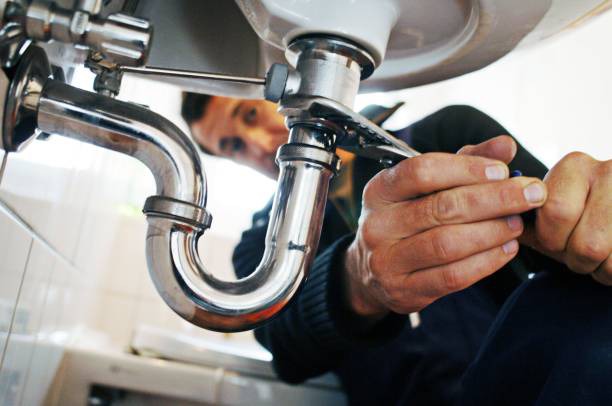Knowing when to call in professional help for plumbing issues is crucial to prevent further damage and costly repairs. Not all problems require professional aid, but there are certain situations when only experienced plumber intervention will do. From persistent leaks to major renovations, read on to understand when reaching out to a professional plumber becomes necessary for efficient and cost-effective solutions.
Recognizing Plumbing Problems
Most homeowners fancy themselves as handy and capable of performing small repairs and maintenance tasks. However, when it comes to plumbing, there are specific instances when you should consider bringing in professionals from companies like The Plumber is Here, who can truly be beneficial for specialized plumbing needs. Here are some indicators to look for in plumbing problems:
-
Running Toilet: A constantly running toilet is a telltale sign of a problem with the flapper valve. It could also indicate improperly balanced floats or a fill tube issue.
-
Discolored Water: If the water coming from your faucets is a strange color or has a peculiar smell, this could indicate a problem with your pipes or local water supply.
-
Dripping Faucets: While it might seem like a small annoyance, a dripping faucet can waste significant amounts of water over time and spike your water bill.
-
Strange Noises: Hearing gurgling sounds from your drain or toilet is a sign that air is trapped in the pipes or there is a drawing issue.
-
Visible Leaks: This is often the most obvious sign of a plumbing problem. Damaged pipes, worn-out hardware, or a faulty water system could be the reasons for visible leaks.
Signs You Might Need a Plumber
1. Slow Drainage
When faced with a slow-draining sink, shower, or bathtub, it typically indicates a clog in your plumbing system. Minor clogs might be cleared using conventional methods such as a plunger or a drain snake. However, stubborn or severe blockages may not budge easily with these do-it-yourself techniques. In such scenarios, the problem can go beyond the surface level and might indicate a deeper issue within your plumbing system.
2. Backup in Multiple Drains
Should you experience backups in multiple drains at the same time, it’s likely indicating a serious issue with your main sewer line. This type of problem is not suited for a do-it-yourself fix and definitely requires the expertise of a professional plumber. Sewer line complications can cause substantial damage rapidly if they’re not dealt with immediately. It’s crucial to recognize these signs and make that important call to a plumber without delay to address and resolve the issue swiftly.
3. Low Water Pressure
Consistent low water pressure throughout your home might imply a problem with your water supply line. It could be due to a buildup of sediment or minerals or a sign of a bigger issue. A professional plumber would be needed to diagnose and resolve the problem effectively.
4. No Hot Water
If you’re out of hot water or it takes forever for your water to heat up, your water heater may be on the fritz. As water heater repairs can be dangerous for the inexperienced, it’s always better to leave them to the pros.
5. Frozen Pipes
In cold climates, pipes can freeze and potentially burst, leading to costly property damage. If you suspect a frozen pipe, you should call a professional plumber straight away to handle the problem safely.
A suspicious increase in your water bill also connotes a leak issue. While some leaks might be easy to spot, others can require specialized detection equipment. A professional plumber in Holland, for instance, would have the necessary tools and skills to find and fix such leaks promptly, preventing further damage to your home.
How to Avoid Plumbing Disasters
Regular Inspections
Routine plumbing inspections can help detect potential issues before they become critical. They encompass reviewing pipes, drains, faucets, and your water heater and should ideally be performed by a professional plumber.
Understanding how to avoid sump pump failure is crucial for homeowners to prevent potential flooding. Key to this is regular maintenance, which includes testing its functionality by pouring water into the pit and occasional cleanings to prevent debris accumulation. These measures help prolong its lifespan, ensuring optimal performance during critical weather conditions.
Proper Disposal Practices
Practicing proper disposal habits can significantly reduce the risk of clogs. Avoid pouring fats, oils, or grease down your drain, as they can solidify and cause blockages. Discourage flushing anything other than toilet paper down toilets.
Final Thoughts
Understanding the specifics of when to call a professional plumber can be invaluable. Don’t let minor issues escalate into costly repairs because of neglect or attempted DIY fixes. Plumb the depths of wisdom, and when in doubt, always call a professional. So next time a plumbing problem arises, ask yourself – is this a DIY job, or is it time to dial up the expertise of a seasoned professional?




